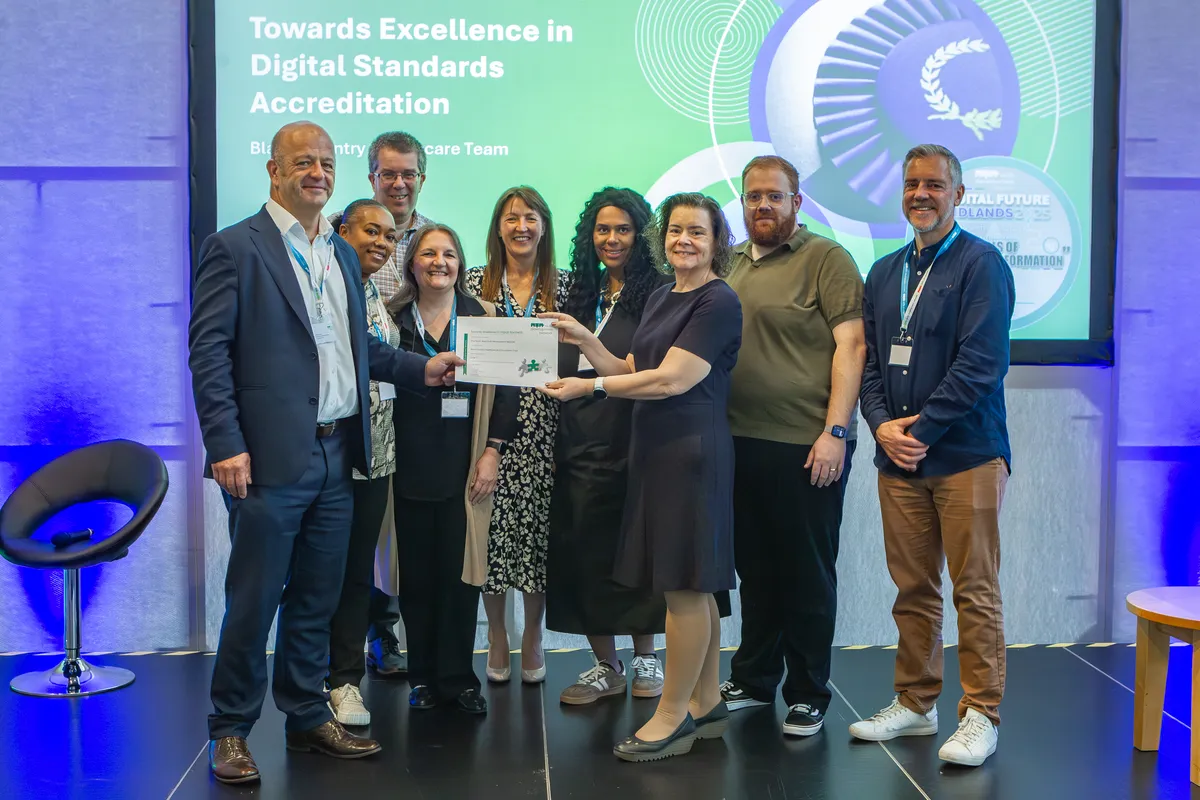Copyright expressandstar

Black Country Healthcare NHS Foundation Trust, which provides mental health, learning disability and community services across Dudley, Sandwell, Walsall and Wolverhampton, has been recognised with the Excellence in Digital Accreditation Award. But behind the accolade lies a deeper story: a transformation that could shape how patients interact with the NHS in the years ahead. From outdated systems to digital confidence Just a few years ago, the Trust’s digital team was grappling with ageing equipment, patchy infrastructure and the challenge of merging multiple organisations into one. Staff describe that period as a “digital reset” - a time when even basic systems struggled to keep up with demand. Now, that picture looks very different. Every part of the Trust’s digital, data and technology service has been rebuilt, modernised and connected, with an emphasis on practical changes that make life easier for both staff and patients. The award recognises that journey from ‘hand-me-down kit’ to a modern, customer-focused service. What does this mean for patients? The Trust’s focus isn’t just on new hardware or software. It’s about creating digital tools that change everyday care. One of those projects is Patient Engagement Portal (PEP) – developed with healthcare technology company Wellola. The platform will allow patients to manage appointments, access letters online and communicate securely with care teams. The system is being introduced across the Black Country, part of a wider push to reduce missed appointments and make it easier for people to stay connected with their treatment. Another initiative, Management and Supervision Tool (MAST), is currently being rolled out internally. The system gives clinical leads and managers a live picture of how services are performing and where extra support is needed. By spotting gaps early such as heavy caseloads, missed supervision or training needs - it helps staff step in before small issues escalate. The aim is simple but powerful; to strengthen the support network around front-line teams so that patients get timely, consistent help and therefore less likely to reach crisis point. Both projects are designed to respond to some of the NHS’s biggest challenges: long waiting times, administrative delays and the growing demand for more personalised care. Why this matters beyond the Trust Across the country, NHS organisations are under pressure to modernise. Digital transformation is often discussed in terms of efficiency or savings, but in areas like the Black Country – where deprivation and health inequalities remain among the highest in England – the issue is about access and fairness. Nick Dunaway, Chief Information Officer at Black Country Healthcare NHS Foundation Trust, said: “Digital inclusion is now a health issue. If we can make it easier for someone to manage appointments online, get the right information at the right time and feel supported between visits, that has a direct impact on outcomes.” The Trust plans to begin rolling out new systems such as the Patient Engagement Portal (PEP) over the coming year. Designed to give patients more control over how they connect with services, the platform will eventually allow people to manage appointments, access letters electronically and receive tailored information. “These tools are about removing barriers, not adding them,” Mr Dunaway added. “Our goal is to make digital work for everyone - patients, carers and staff.” The people behind the progress Those working in the Trust’s digital team say the biggest change has been cultural. The accreditation process focused as much on leadership, teamwork and wellbeing as on technology. “It’s easy to talk about data and systems,” said one senior IT manager. “But the turning point was when people felt proud to be part of something, not just fixing computers. We started building a service people wanted to work in.” The assessors who granted the award praised the Trust’s approach as “inclusive and forward-looking” and noted how the organisation had helped raise standards across the region. What comes next The Trust plans to use the recognition as a platform to go further. Over the next year, it will expand the use of digital tools in community mental health services and explore how technology can support early intervention, home-based treatment and self-care. “Technology will never replace people,” said Laura McGowan, Chief Clinical Information Officer “But it can make every interaction more meaningful. When our staff have the right tools, they spend less time on systems and more time on care and patients gain more choice in how they’re supported.” As the NHS grapples with rising demand, staffing pressures and public expectation for faster, more connected care, the Black Country’s digital leap may offer a glimpse of what the future of mental health services could look like - one where innovation begins with empathy and ends with better care.



